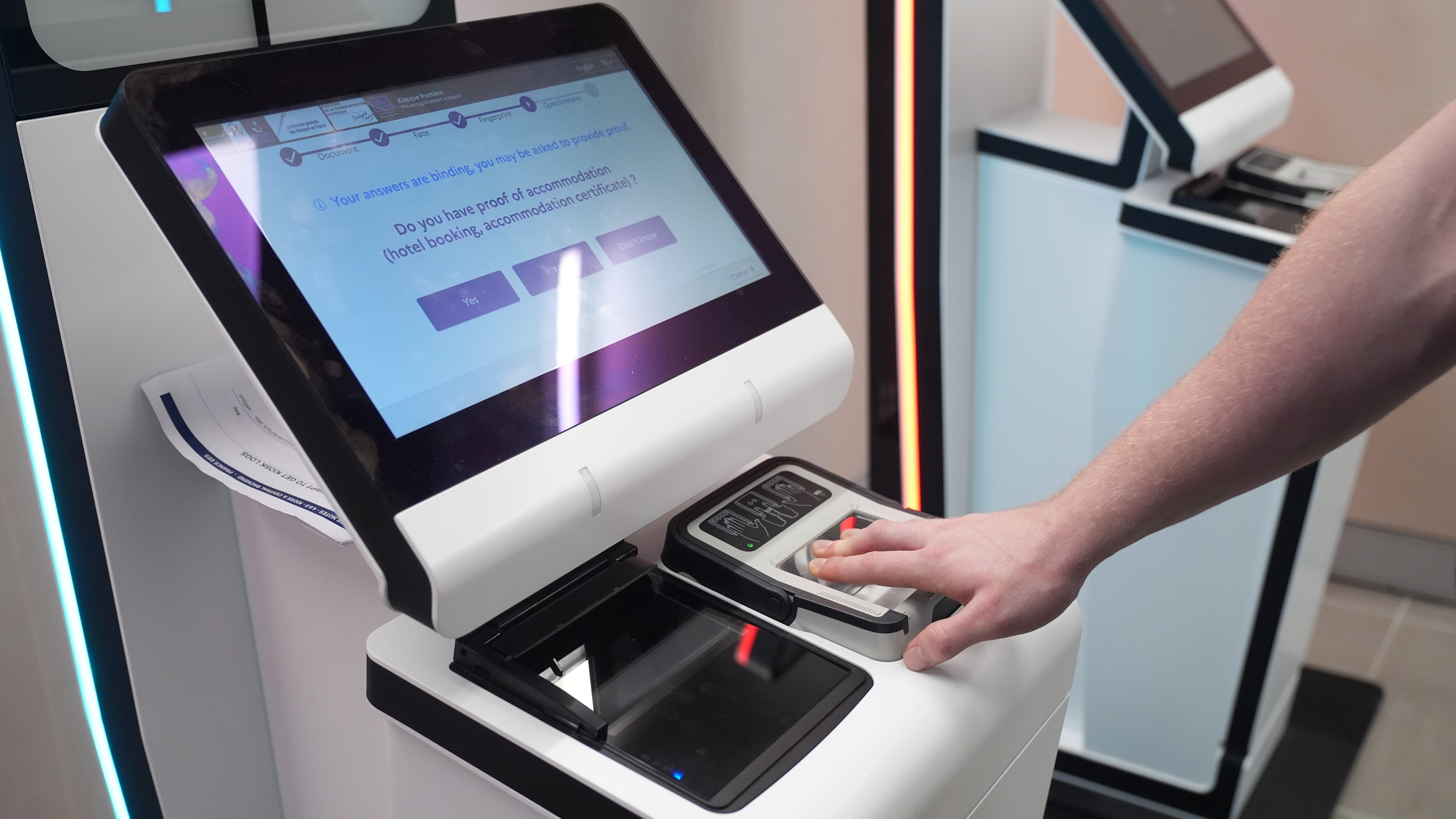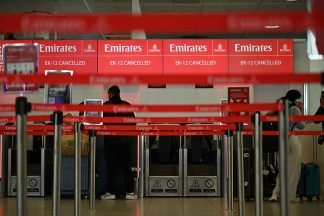UK holidaymakers are being warned to expect four-hour queues as a new EU border system comes into force.
The Entry Exit System (EES) begins on Sunday and involves people from third-party countries like the UK having their fingerprints registered and photograph taken before entering 29 European countries, mainly in the EU.
Experts are warning British passport holders to brace for delays as staff “familiarise themselves with the new procedures”, which will lead to longer waits at border control on arrival to countries in the Schengen area, which includes France, Spain and Germany.
Julia Lo Bue-Said, chief executive of Advantage Travel Partnership, a network of independent travel agents, said: “For major airports in southern Europe, we recommend that travellers now allocate four hours for navigating the new system in these initial stages.”
She warned that “delays should be anticipated” at border controls when multiple flights arrive at similar times, and “we foresee potentially overwhelming volumes of travellers during the initial roll-out”.
Rory Boland, editor of consumer magazine Which? Travel, said: “Longer waits are expected at border control on arrival so you should allow more time when you land by booking later transfers or other onward travel.”
The Home Office said the extra checks “should only take one to two minutes” to complete but warned they may lead to “longer waits at busy times”.
UK travellers boarding international services from London’s St Pancras railway station, the Port of Dover and Eurotunnel’s Folkestone terminal will complete EES checks in the UK.
New kiosks have been installed at those locations but only some passengers will be required to use them from Sunday.
The EU is rolling out EES in a phased manner, with participating states initially only required to use the system for a proportion of their arrivals.
The deadline for full implementation is April 10 next year.
An individual’s EES registration will be valid for three years although their details will still be verified on each trip in that period.
The system will eventually replace the need for border officers to stamp passports.
Mark Tanzer, chief executive of travel trade organisation Abta, said: “In the longer term, EES should make processes quicker and simpler for travel to Europe.
“Looking at the short term, given the scale of the operation, there may be some delays, particularly at peak travel times.
“But countries will be stepping up their processes gradually and have the option to stand down the system to avoid significant and lengthy waiting times.
“We ask that countries remain vigilant and use this contingency measure where needed.”
It is hoped that it will help countries within the Schengen area identify suspected criminals and combat identity fraud.
It is also hoped it will reduce illegal immigration and help the EU stop visitors from overstaying by automating border control checks.
Follow STV News on WhatsApp
Scan the QR code on your mobile device for all the latest news from around the country






























